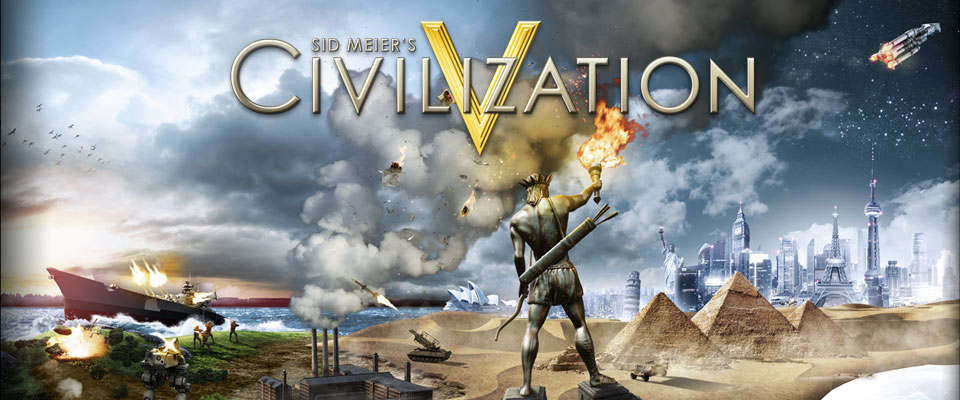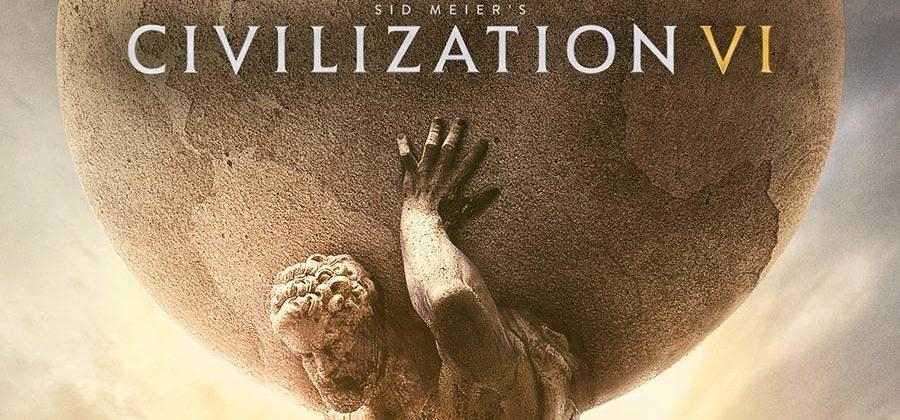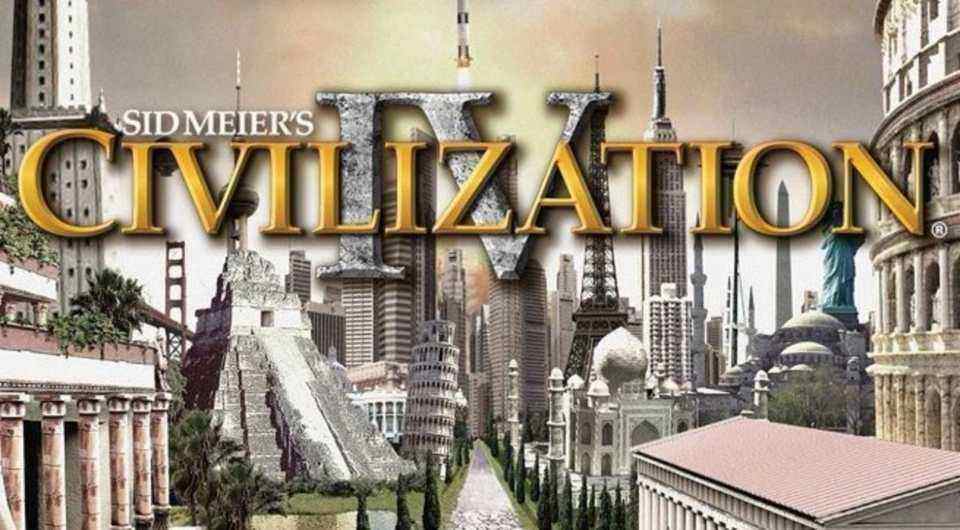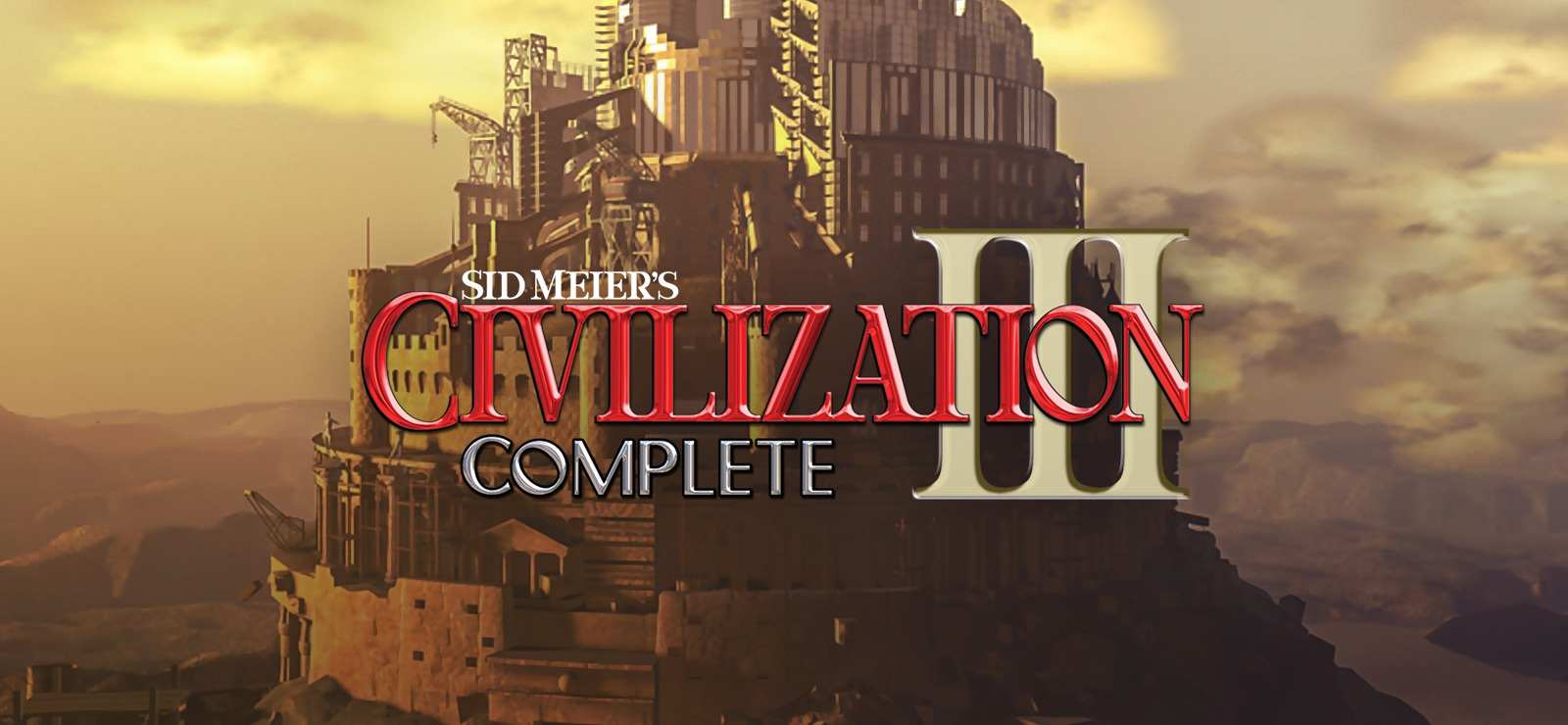Generally speaking, I don’t generally get very fanboyish over developers or games, but Sid Meier is by far my favorite developer and I absolutely love his games. He’s a big inspiration for me as a gamer and a game critic, and some of my top 10 favorite games are Sid Meier games.
Of course, one of the biggest franchises to be borne out of Sid Meier’s awesomeness is the Civilization franchise, and it’s no surprise that we consider it one of the best turn-based strategy games.
Problem is, with 6 installments in the main franchise, and another 6 spin-offs, it’s kinda hard to get into the franchise for somebody new. Thankfully, that’s what we’re here for, and the list below ranks some of the better Civ games out there, so you know where to start.
Also, I’ll try not to let my fanboyism seep through too much!
#1 Civilization V
So there’s actually quite a bit of back and forth on whether Civ V or Civ IV was the best Civ game. On the one hand, Civ IV had much more complexity and depth to it, on the other Civ V sort of simplified things and made it more accessible (and cut out a lot of content to parcel out into DLC). As for me, while I certainly love Civ IV, I’d probably end up suggesting Civ V for anybody just entering the genre.

Funnily enough, Civ V has come a long way since it was first released, considering the massive amount of bugs and AI issues it had. Honestly, it was somewhat unplayable at first, but with improvements over time, and the two massive expansions . . . well, some problems still remain. Thankfully, Civ V introduced much better mod support, so modding your game is so much easier compared to previous Civ games.
On top of that, it did add some simplifications, such as one-unit-only tiles, compared to the unit stacking you could do before which was a bit of a pain. Along with that, we got a hexagonal grid, rather than a square grid from previous games, which made movement across the map much more interesting.
Another pretty cool addition was city-states, which altered the strategy considerably. Unlike major powers, these smaller states aren’t trying to vie for power, but instead offered an opportunity for new allies and new bonuses to your gameplay.
By sending befriending these city-states, you could get gifts in the form of resources or units, as well as delegates in the world congress, which were pretty helpful. That being said, you could always conquer them by force and term them into one of your cities, if you are so inclined.
Of course, at this point, I do have to mention that Civ V without the two expansions (God and Kings and Brave New World), is not a Civ worth playing. So if you’re planning to enter the fray of Civ game with Civ V, it’s imperative you get those two. Thankfully, you can probably find bundles that include the base game plus expansions for relatively cheap, and there are often sales, so you don’t have to pay full price.
#2 Civilization VI
When I was first writing up and organizing this list, I agonized on whether I should put Civ VI or Civ IV in second place, because they’re both great entries into the franchise. Ultimately I chose Civ VI because it’s sort of a lateral improvement to Civ V, plus we at GameGavel consider it one of the best strategy games out there. Civ VI doesn’t differ that massively from Civ V, with the game still being more simplified and user-friendly to get into.

The really big change from the previous title is the ability to expand cities beyond one tile with districts. These new districts fall into general categories such as ‘Entertainment’ or ‘Religion’ and offer specific bonuses and buildings to their own categories. In addition, districts could receive special bonuses depending on what hexes they’re built on, such as being built next to mountains or rivers.
It’s an interesting change, to say the least, and certainly expanded the strategy. With Civ VI you can specialize in your path to victory by building the districts that work best with your style of play. For example, if you’re going for a domination victory, building a military district can give you bonuses to experience levels of units, plus a ‘fortress’ that can shoot projectiles like your city.
Probably the best thing though is that Civ VI included the majority of features and mechanics from CIV V in the base game, so you didn’t have to rely on a bunch of expansions. That being said, Civ VI has two really great expansions called ‘Rise and Fall’ and ‘Gathering Storm’ that added a few interesting features.
Rise and Fall added golden and dark ages and made them dynamic based on how you play the game and what decisions you take, through the Era Score and what milestones you hit. A new reputation system was also added, wherein your cities could rebel and become ‘Free Cities’ if they’re too unhappy with you, plus you could take over other civ’s cities in the same way.
Finally, alliances could be formed against you in a global emergency if you become too powerful or take a really ‘evil’ action, like using Nukes.
Gathering Storm, on the other hand, deals with the more modern issues that we say in real life, namely global warming and the climate. Natural disasters are added in the form of volcanoes, dust storms, blizzards and even rising tides that can threaten cities built on a coast. On top of that, the diplomacy system has been sort of revamped, with ‘favors’ that you can use as a sort of diplomatic token with the AI in negotiations.
Civ VI is honestly a great game and even though Civ V is probably a better entry for newcomers, I’d certainly suggest people try out Civ VI as well. Of course, much like Civ V, you really should get the expansions to enjoy it to the max.
Related: Best Civ 6 Mods
#3 Civilization IV
Probably one of the most popular installments in the Civilization franchise, Civ IV pulled out all the stops compared to Civ III. A full 3D map, zooming out to see the whole world, and a bunch of really cool improvements on the previous game.

Religion first made a pretty massive impact on the Civ franchise in Civ IV, with it affecting everything from diplomacy to civilization bonuses. While later installations would allow you more control of how your religion was formed and what bonuses it got, in Civ IV, all religions gave the same bonus.
Of course, you could spread the religion as far and wide as you dared, and a lot of the bonus mechanics would kick in based on certain milestones (like how many pops follow your religion and so on).
Another great feature is the new units and mechanics introduced such as espionage and their associated agents. With this system, you could steal tech, money and a variety of different things, as well as have your agent conduct counter-espionage activities.
Great people were also added in this installment under different categories such as musicians, engineers, and scientists. Each great person had a limited-use ability that you could trigger that gave you different kinds of bonuses, such as research points, quick-builds and even units in the cases of Generals and Admirals. Once you use up their ability they’d disappear, making Great People an interesting and strategic investment in your gameplay.
Civ IV was also the first game that really started making modding support easier through their use of XML files. Granted, the moddability didn’t allow drastic changes like some Rimworld mods that changed everything. Instead, they allowed you to tweak settings, maybe add a new unit type or two and that was the extent of it, but it was still a ton back in the day.
That being said, at some point, they did release the SDK so people could make more drastic changes to the AI or even the source code. That was very much down the line though, and there aren’t as many large mods for Civ IV as Civ V and VI.
Oh, and also there was narration by Leonard Nimoy, which is pretty freakin’ awesome!
Now, as to whether the game holds up nowadays, I’d say that it probably doesn’t. Not because it’s not a great game, but because Civ V and VI have really surpassed it in terms of what they offer. Civ IV was an amazing game at the time, and a big jump from Civ III, but it’s not comparatively better than modern installments.
#4 Civilization III
Civ III is the game that ostensibly launched the franchise, as it added a bunch of staples that still exist today. For example, Civ III was the first game to have civilization traits, which actually made them unique and interesting to play. This added a lot of strategy into the franchise, so you could really specialize according to your gameplay.

It’s kind of incredible to think that civilizations didn’t always have their own traits and bonuses.
Civ III was also the game where culture and culture points were added. This created a sphere of influence around the city that acted like borders and brought terrain into your domain that you could exploit. If you were pushed up against another city’s border, both of you would vie for control of tiles, with the city that has higher culture winning (obviously).
Another interesting mechanic that used to be in the franchise is corruption, which essentially gave a debuff to your city’s production. The mechanic still exists in modern installments as population housing, although it’s not exactly the same. Either way, it was a new and interesting addition at the time.
Of course, like any great Civ game, Civ III had two expansions called ‘Play the World’ and ‘Conquest’. Unfortunately, they were pretty minimal compared to modern expansions. ‘Play the World’ added multiplayer and a few new civilizations, whereas ‘Conquest’ added a bunch of historical scenarios with unique mechanics. They were interesting expansions for sure, but they didn’t drastically alter the base game.
Overall Civ III was a really awesome game and lightyears ahead of the competition at the time. Whether it holds up today, I’m not so sure, but it’s certainly a nice game to go back to and play as a classic. You can actually get the Civ III complete edition for around $5 on steam if you ever want to check it out.
#5 Civilization: Beyond Earth
I was originally pretty reluctant to add Beyond Earth to this list because . . . well, it’s not a great civilization game, it’s ok. What really made me put it on the list though, is the fact that it’s a spiritual successor to Alpha Centauri, one of the best games by Sid Meier, and easily one of my top 10 games of all time. So for that alone, it deserves a spot here.

Now, unlike traditional Civilization games that take place on earth, this one takes place on an alien planet after earth needed to be abandoned. Instead of picking traditional civilizations with set bonuses, you can instead customize civilizations much in the same way you can customize religions in Civ V and VI.
The decisions you make here actually have a big impact down the road and your play style, so it’s important to pick the traits that fit your goals and playstyle.
Similarly, and somewhat harking back to Alpha Centauri, you have three affinities (Harmony, Supremacy, Purity) which essentially dictate how the alien world reacts to your presence. For example, having a high harmony affinity allows you to co-exist with this strange new world, and you can even tame some of the wildlife.
Supremacy, on the other hand, is all offense and war and Purity is all about defense and trying to make the new alien planet similar to earth.
Speaking of the wildlife, aliens in this game are similar to barbarians in the rest of the Civ franchise, although they’re much more aggressive off the bat. That being said, you can sometimes avoid them and just ignore them completely, especially if you go with the Harmony affinity. It’s an interesting take on the original Alpha Centauri’s mechanic and narrative of being one with the planet, so it’s certainly nice to see here.
Another major change is the addition of an orbital layer and satellites, which provide a variety of different utilities to the game. For example, there’s an energy satellite which provides extra energy for a specific tile. Another example is a transportation satellite that allows you to move units quickly across the map.
Other than that, the game is pretty similar to Civilization V, as it came out between that and Civ IV. You still have victory conditions, and other civs will try and take you down if they feel you pose a threat (which you will).
So why is the game not considered an awesome entry into the franchise? Well, it does have some nagging issues. For one, the AI is mostly passive and not a real threat, and they’re also rather buggy. Similarly, the rest of the game is also pretty buggy, with some of the mechanics just . . . not working.
The biggest issue though is that the game doesn’t have much of a soul, at least compared to Alpha Centauri. Where the latter had this really compelling narrative about what it is to be human in a new world, Beyond Earth just seems very boring and flat. It feels like a game of conquest and trying to terraform and colonize a new planet by force and numbers, rather than trying to deal with a hostile new environment.
Even so, Beyond Earth is a good game, and it’s certainly worth a playthrough if you can get it on sale. Otherwise, if you’re down for playing a much older game, then Alpha Centauri is a classic and a must-play for fans of 4X games.
Final Verdict
Well there you have it, folks, some of the best Civ games out there. Of course, I didn’t go over all the games, and there might be a couple more spin-offs you might want to check out.
That being said, if you’re looking to get into the Civ series, then Civ V or Civ VI is probably the best place to start. Personally, I think Civ V is a great place to start, although I know some prefer to play the latest game in the series, in which case you shouldn’t feel bad about starting with Civ VI. Whichever choice you make, I hope you all the best, and try not to nuke all the other civs out of existence!